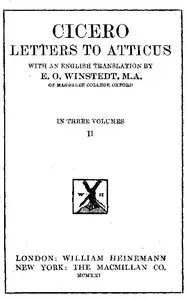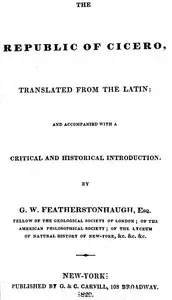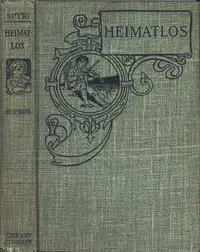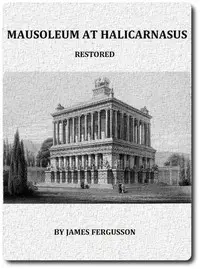"Cicero: Letters to Atticus, Vol. 3 of 3" by Marcus Tullius Cicero is a collection of personal correspondences written during the late Roman Republic, specifically in the mid-1st century BC. This volume encompasses letters that Cicero wrote to his close friend Atticus, reflecting on various political, personal, and philosophical matters as Cicero navigates the tumultuous landscape of Roman politics and his own grief. The letters provide a window into Cicero's thoughts and feelings during the last years of his life, underscoring themes of friendship, loss, and the struggle for the republic. The opening of the collection introduces readers to Cicero's state of mind shortly after Caesar's victory over the Pompeians in 46 BC. It outlines Cicero's life during a peaceful interlude after the civil war, where he embraced a more recluse lifestyle focused on writing and personal pursuits. Expressing his affection for Atticus and his daughter Tullia, Cicero also grapples with lingering sadness over Tullia's death, intertwining his literary activities with reflections on his personal losses and political concerns. This narrative not only highlights his relationships but showcases his profound emotional depth and intellectual engagement, setting the stage for the impactful themes explored throughout the letters. (This is an automatically generated summary.)
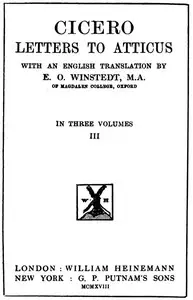
Cicero: Letters to Atticus, Vol. 3 of 3
By Marcus Tullius Cicero
"Cicero: Letters to Atticus, Vol. 3 of 3" by Marcus Tullius Cicero is a collection of personal correspondences written during the late Roman Republic,...
Marcus Tullius Cicero was a Roman statesman, lawyer, scholar, philosopher, writer and Academic skeptic, who tried to uphold optimate principles during the political crises that led to the establishment of the Roman Empire. His extensive writings include treatises on rhetoric, philosophy and politics. He is considered one of Rome's greatest orators and prose stylists and the innovator of what became known as "Ciceronian rhetoric". Cicero was educated in Rome and in Greece. He came from a wealthy municipal family of the Roman equestrian order, and served as consul in 63 BC.


